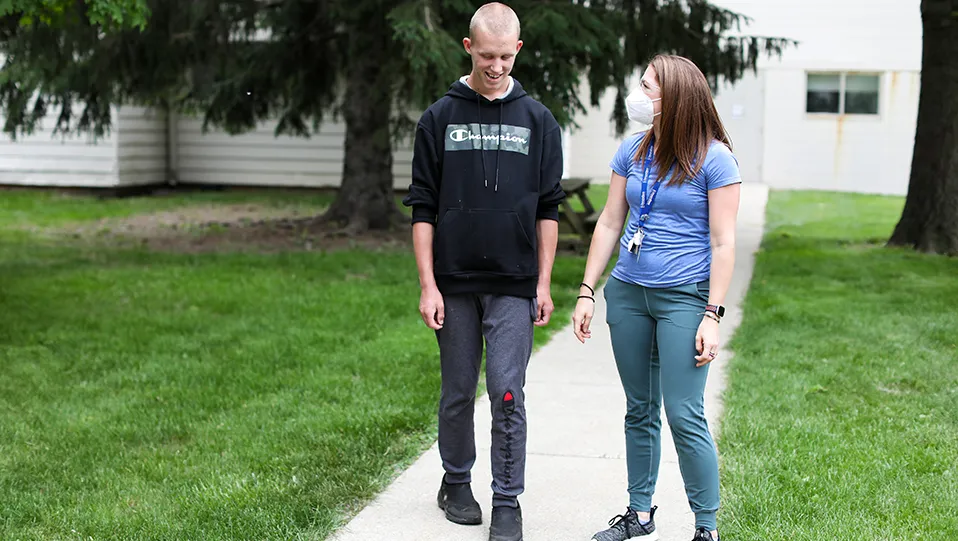Job Spotlight: Behavior Technician
- Autism Care
- Stories
- Caregiver
- Employee
- News

What is a BT?
While Bekhym Applegate, Lead Behavior Technician (BT), tells his family and friends, “I work with kids on the autism spectrum,” he does so much more than that. In his role with Boundless, Bekhym provides evidence-backed treatment and teaches social skills, communication, coping skills, and job readiness.
Behavior Technicians work under board-certified behavior analysts and use applied behavior analysis (ABA) to encourage behaviors in the people they serve. ABA serves as the framework under which BTs work. ABA identifies a set of behaviors to increase, maintain, or replace in each individual. Specific tasks, like pattern recognition or object association, are designed to meet those goals, and progress is reported. The overarching goal is to increase independence, so these goals are very concrete and directly target important activities.
BTs often carry certain skills and tendencies into the role, typically the same talents that attracted them to the career in the first place. Those who are goal-oriented often succeed as BTs because ABA is goal-driven. Often, the people who most enjoy their roles as a BT are naturally detail-oriented and enjoy tracking progress and making lists. An interest in ABA or psychology would be a helpful characteristic, as well. The only skills required for this job are that they must be open-minded, curious, and patient.
Working as a BT is a great way to explore a career in psychology or ABA without needing a master’s degree. In fact, only a high school diploma and previous experience in the mental health field is required to be hired as a BT at Boundless. Many direct support professionals transition into BT roles as they explore their career options.
Even Bekhym would say that this job is not for everyone, and that’s okay. Because of the nature of the job and the people BTs serve, progress can be slow; however, that makes it more rewarding when the impact becomes clear. BTs reap other rewards from this role, too. Bekhym reports that he’s gained a sense of perspective from working as the lead BT at an intermediate care facility. Outside of work, he now sees setbacks as manageable goals and is less likely to give up on something just because it is challenging. In his words, “Life is not actually as hard as it feels sometimes.” He credits his time working at Boundless for changing that perspective.
“We do so much more than skills-based things. It’s not just learning to use a fork. We are their safe place when they are away from home,” he said. “If you come into this job with an open mind, an open heart, and the willingness to learn, you can grow so much as a person and as an employee.”








